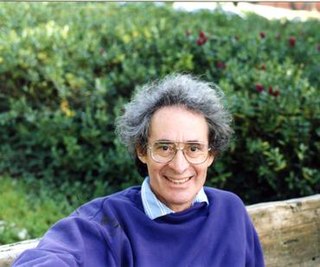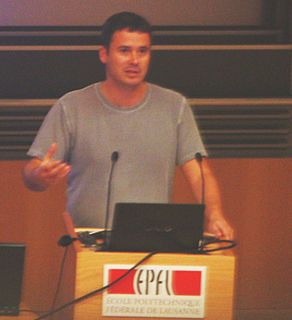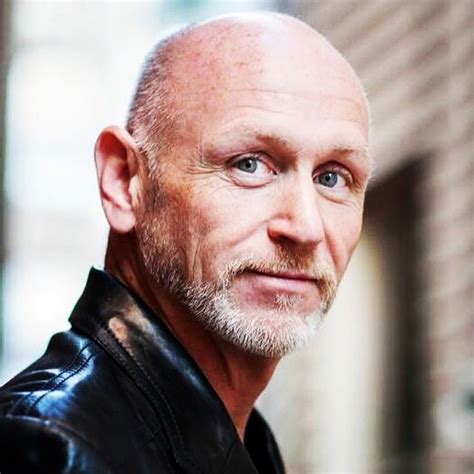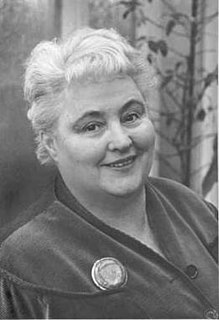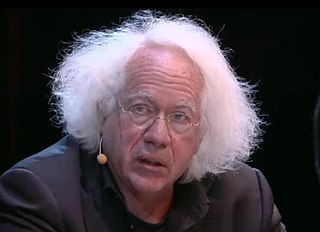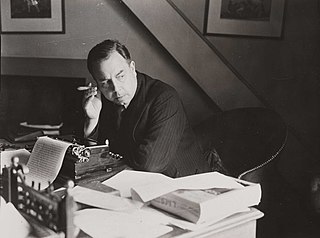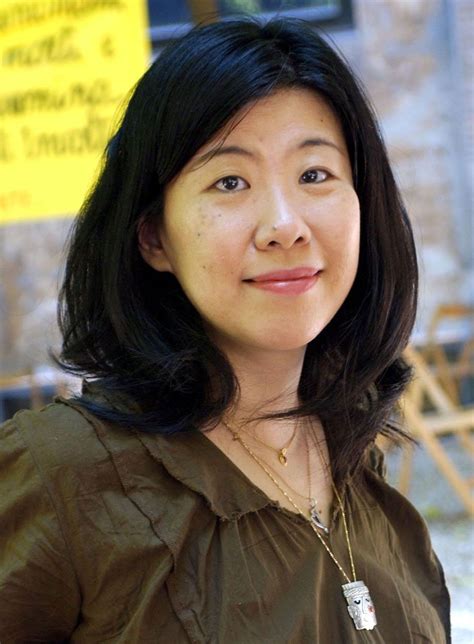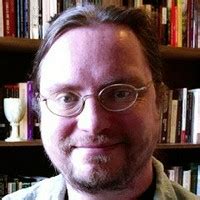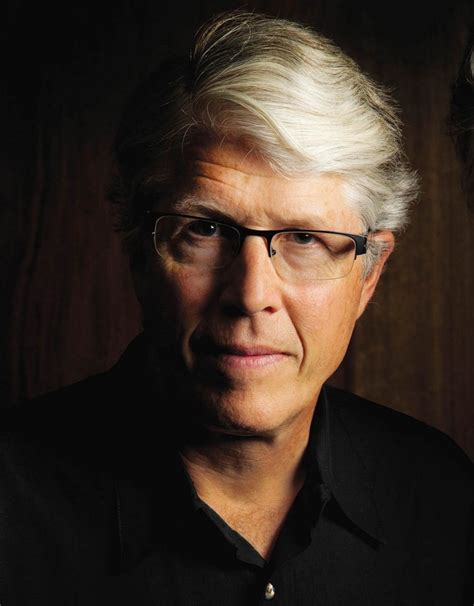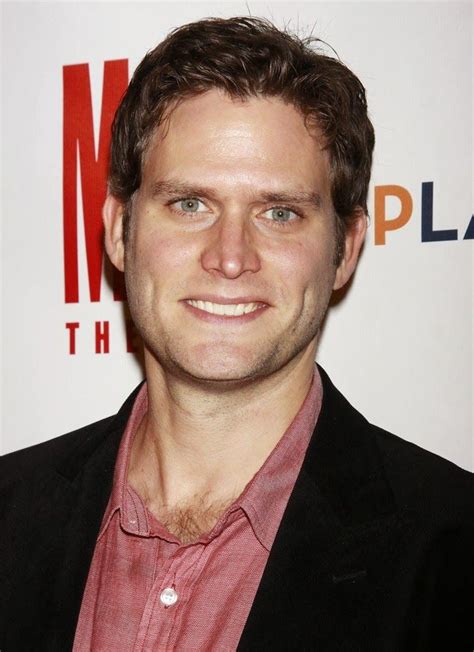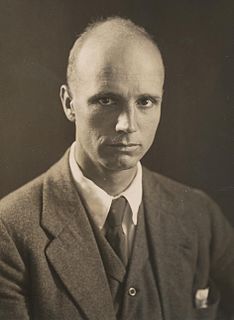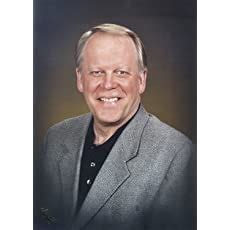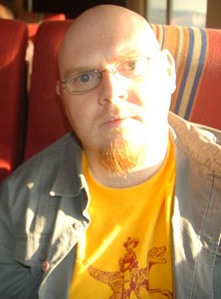Top 1200 Utterly Quotes & Sayings - Page 20
Explore popular Utterly quotes.
Last updated on April 19, 2025.
The true scientific understanding of the nature of existence is so utterly fascinating; how could you not want people to share it? Carl Sagan, I think, said 'when you're in love, you want to tell the world.' And who, on understanding a scientific view of reality, would not, as it were, fall in love and want to tell the world.
It is clear that the main tenet of socialism, community of goods, must be utterly rejected, since it only injures those whom it would seem meant to benefit, is directly contrary to the natural rights of mankind, and would introduce confusion and disorder into the commonweal. The first and most fundamental principle, therefore, if one would undertake to alleviate the condition of the masses, must be the inviolability of private property.
Jim Grimsley's unflinching self-examination of his own boyhood racial prejudices during the era of school desegregation is one of the most compelling memoirs of recent years. Vivid, precise, and utterly honest, How I Shed My Skin is a time-machine of sorts, a reminder that our past is every bit as complex as our present, and that broad cultural changes are often intimate, personal, and idiosyncratic.
But would we know, whether the pretended prophet had really attained a just sentiment of morals? Let us attend to his narration; and we shall soon find, that he bestows praise on such instances of treachery, inhumanity, cruelty, revenge, bigotry, as are utterly incompatible with civilized society. No steady rule of right seems there to be attended to; and every action is blamed or praised, so far only as it is beneficial or hurtful to the true believers.
By consequence I hold that no one ever did, or can do, anything for "society."... Comte invented the term altruism as an antonym for egoism, and it found its way at once into everyone's mouth, although it is utterly devoid of meaning, since it points to nothing that ever existed in mankind; This hybrid or rather this degenerate form of hedonism served powerfully to invest collectivism's principles with a specious moral sanction, and collectivists naturally made the most of it.
Wherever primitive man put up a word, he believed he had made a discovery. How utterly mistaken he really was! He had touched a problem, and while supposing he had solved it, he had created and obstacle to its solution. Now, with every new knowledge we stumble over flint-like and petrified words and, in so doing, break a leg sooner than a word.
It skims in through the eye, and by means of the utterly delicate retina hurls shadows like insect legs inward for translation. Then an immense space opens up in silence and an endlessly fecund sub-universe the writer descends, and asks the reader to descend after him, not merely to gain instructions but also to experience delight, the delight of mind freed from matter and exultant in the strength it has stolen from matter.
It is funny, but it strikes me that a person without anecdotes that they nurse while they live, and that survive them, are more likely to be utterly lost not only to history but the family following them. Of course this is the fate of most souls, reducing entire lives, no matter how vivid and wonderful, to those sad black names on withering family trees, with half a date dangling after and a question mark.
This is a wonderful book, unique and engaging. Diaconis and Graham manage to convey the awe and marvels of mathematics, and of magic tricks, especially those that depend fundamentally on mathematical ideas. They range over many delicious topics, giving us an enchanting personal view of the history and practice of magic, of mathematics, and of the fascinating connection between the two cultures. Magical Mathematics will have an utterly devoted readership.
I am afraid I am one of those people who continues to read in the hope of sometime discovering in a book a single—and singular—piece of wisdom so penetrating, so soul stirring, so utterly applicable to my own life as to make all the bad books I have read seem well worth the countless hours spent on them. My guess is that this wisdom, if it ever arrives, will do so in the form of a generalization.
Let us watch against unbelief, pride, and self-confidence. If we go forth in our own strength, we shall faint, and utterly fall; but, waiting on the Lord, out of weakness we shall be made strong. Having our hearts and our hopes in heaven, we shall be carried above all difficulties, and be enabled to press forward and lay hold of the prize of our high calling in Christ Jesus.
Thinking, not for the first time, that life should come with a trapdoor. Just a little exit hatch you could disappear through when you´d utterly and completely mortified yourself. Or when you had spontaneous zit eruptions. “Good book?” he asked, taking it from her and reading the subtitle, “A Guide for Good Girls Who (Sometimes) Want to Be Bad,” out loud. But life did not come with a trapdoor.
Becoming a real researcher has been the ultimate humbling experience for me. Nature is the examiner from hell; if you find new things at all, you always find them the hard way, with sweat and tears. Only then do you notice that there was a really easy way to find them. But this insight rarely arrives before you have been utterly humiliated and reduced to despair.
Starvation!" exclaimed the abbe, springing from his seat. "Why, the vilest animals are not suffered to die by such a death as that. The very dogs that wander houseless and homeless in the streets find some pitying hand to cast them a mouthful of bread; and that a man, a Christian, should be allowed to perish of hunger in the midst of other men who call themselves Christians, is too horrible for belief. Oh, it is impossible - utterly impossible!
I think we all look for clues that we are not utterly alone... Clues we find in literature and paintings and music and even someone’s eyes; clues that demonstrate that someone else has felt the same indescribable feelings, seen the same things or passed by the spot even if it was by candlelight three hundred years ago. It means everything, like finding footprints in the sand of a deserted island.
Nothing drives your opponents more crazy than being utterly reasonable. And nothing makes demonizing or delegitimizing your opponents easier than letting them shriek unreasonable things for you. The Republicans need to get back to being the party that elicits unreasonable shrieking from their opponents. Not the other way around.
Only man is a narcissistic enough species to think that a highly evolved alien life force would travel across billions and billions of light-years- a group of aliens so intelligent, so insouciant, so utterly above it all, they feel no need whatsoever to equip their spacecraft with windows so that they can gaze out on all that celestial beauty-but then immediately upon landing, their first impulse is to get in some hick's ass with a flashlight.
Death is not earnest in the same way the eternal is. To the earnestness of death belongs precisely that remarkable capacity for awakening, that resonance of a profound mockery which, detached from the thought of the eternal, is an empty and often brash jest, but together with the thought of the eternal is just what it should be, utterly different from the insipid solemness which least of all captures and holds a thought with tension like that of death.
the relationship between the two men was something of a miracle in itself. It was a cordiality based, apparently, on complete non-comprehension cemented by a deep mutual respect for the utterly unknown. No two men saw less eye to eye and the result was unexpected harmony, as if a dog and a fish had mysteriously become friends and were proud each of the other's remarkable dissimilarity to himself.
Since ancient times, the philosophers' secret has always been this: we know that God does not exist, or, at least, if he does, he's utterly indifferent to our individual affairs--but we can't let the rabble know that; it's the fear of God, the threat of divine punishment and the promise of divine reward, that keeps in line those too unsophisticated to work out questions of morality on their own.
It seems to me an utterly futile task to prescribe rules and limitations for the conduct of war. War is not a game; hence one cannot wage war by rules as one would in playing games. Our fight must be against war itself. The masses of people can most effectively fight the institution of war by establishing an organization for the absolute refusal of military service.
If we don't know that there is such a person as God, we don't know the first thing (the most important thing) about ourselves, each other and our world. This is because the most important truths about us and them, is that we have been created by the Lord, and utterly depend upon him for our continued existence.
Philip Kitcher has composed the most formidable defense of the secular view of life since Dewey. Unlike almost all of contemporary atheism, Life After Faith is utterly devoid of cartoons and caricatures of religion. It is, instead, a sober and soulful book, an exemplary practice of philosophical reflection. Scrupulous in its argument, elegant in its style, humane in its spirit, it is animated by a stirring aspiration to wisdom. Even as I quarrel with it I admire it.
Then she added in a sort of childish delight: 'We'll be poor, won't we? Like people in books. And I'll be an orphan and utterly free. Free and poor! What fun!' She stopped and raised her lips to him in a delighted kiss. 'It's impossible to be both together,' said John grimly. 'People have found that out. And I should choose to be free as preferable of the two.
Three years after my first trip to Haiti, I realized there was another emotional note that had to be reckoned with: the intense, vibrant color of these worlds. Searing light and intense color seemed somehow embedded in the cultures that I had begun working in, so utterly different from the gray-brown reticence of my New England background. Since then, I have worked predominantly in color.
Obviously if you want to get good at something which is competitive, you have to think about it and practice a lot. You have to keep learning because world keeps changing and competitors keep learning. You have to go to bed wiser than you got up. As you try to master what you are trying to do – people who do that almost never fail utterly. Very few have ever failed with that approach. You may rise slowly, but you are sure to rise.
Chris Claremont once said of Alan Moore, "if he could plot, we'd all have to get together and kill him." Which utterly misses the most compelling part of Alan's writing, the way he develops and expresses ideas and character. Plot does not define story. Plot is the framework within which ideas are explored and personalities and relationships are unfolded.
Do you solemnly swear never to conceal a vital clue from the reader? Do you promise to observe seemly moderation in the use of gangs, conspiracies, Super Criminals and Lunatics and utterly and forever to forswear Mysterious Poisons unknown to science? Will you honor the King's English? ... If you fail to keep your promise, may other writers steal your plots and your pages swarm with misprints.
What’s the point of opening yourself up to your friends if they don’t notice you in your vulnerable state? The point of it all is to love friends completely and utterly, at their best and worst, and to love more than just the good things. It’s about showing that you’re willing to accept them for whatever they are, that they should not feel insecure or self-conscious in your presence, which can be a hard task to achieve.
On the 1st of August, 1774, I endeavoured to extract air from mercurius calcinates per se [mercury oxide]; and I presently found that, by means of this lens, air was expelled from it very readily. … I admitted water to it [the extracted air], and found that it was not imbibed by it. But what surprized me more than I can well express, was, that a candle burned in this air with a remarkably vigorous flame… I was utterly at a loss how to account for it.
The whole essence of Zen consists in walking along the razor's edge of Now - to be so utterly, so completely present that no problem, no suffering, nothing that is not who you are in your essence, can survive in you. In the Now, in the absence of time, all your problems dissolve. Suffering needs time; it cannot survive in the Now.
Behind the cameras, there's a different problem, which I think is not unconscious gender bias. It's probably categorized more as conscious gender bias. Because everybody's known the numbers for decades. Nobody's stunned to hear there are very few female directors, only 4 or 7 percent. Everybody knows, but it doesn't change anything. It doesn't make people say, "Wow! We should change that." Nothing happens. It's utterly stagnant.
As all of our lives become digital, the logic of encryption is all of our lives will be covered by strong encryption, and therefore all of our lives - including the lives of criminals and terrorists and spies - will be in a place that is utterly unavailable to court-ordered process. And that, I think, to a democracy should be very, very concerning.
I am completely and utterly hooked to all the great shows on A&E and Court TV that are about small town murder. These shows like Forensic Files, City Confidential, I just can't get enough of them. It's always the same sort of deal. You know that they interview the actual people that lived through the experience. I miss Paul Winfield as the host of City Confidential, may he rest in peace.
Should a reasonable person not demand that philosophy should not be foolishly purveyed before people incompetent to see the point of it, as pearls before swine? For Nietzsche is utterly correct: philosophy is only for the healthy and whole-minded, the sick it has always only made even sicker. By means of philosophy they dig themselves even deeper into their pathetic delusions.
So, have you been enjoying yourself these days, Kazami?' I'm having lots of fun.' It was true. That made the sense of regret even keener, that this time in my life would soon be a thing of the past. I felt as if I could understand a little of what my mother had been through, and the feelings she may have had at different times. I wasn't a child anymore, and this made me feel awfully lonesome, and utterly alone.
The duty imposed upon him [the president] to take care that the laws be faithfully executed, follows out the strong injunctions of his oath of office, that he will 'preserve, protect, and defend the Constitution.' The great object of the executive department is to accomplish this purpose; and without it, be the form of government whatever it may, it will be utterly worthless for offence or defense; for the redress of grievances or the protection of rights; for the happiness, or good order, or safety of the people.
To crave and to have are as like as a thing and its shadow. For when does a berry break upon the tongue as sweetly as when one longs to taste it, and when is the taste refracted into so many hues and savors of ripeness and earth, and when do our senses know any thing so utterly as when we lack it? And here again is a foreshadowing - the world will be made whole. For to wish for a hand on one's hair is all but to feel it. So whatever we may lose, very craving gives it back to us again.
Our measure of rewards and punishments is most partial and incomplete, absurdly inadequate, utterly worldly; and we wish to continue it into the next world. Into that next and awful world we strive to pursue men, and send after them our impotent paltry verdicts of condemnation or acquittal. We set up our paltry little rod to measure heaven immeasurable.
God has surely promised His grace to the humbled: that is, to those who mourn over and despair of themselves. But a man cannot be thoroughly humbled till he realizes that his salvation is utterly beyond his own powers, counsels, efforts, will and works, and depends absolutely on the will, counsel, pleasure and work of Another -- God alone.
Pirate Hunters is a fantastic book, an utterly engrossing and satisfying read. It tells the story of the hunt for the rare wreck of a pirate ship, which had been captained by one of the most remarkable pirates in history. This is a real-life Treasure Island, complete with swashbuckling, half-crazy treasure hunters and vivid Caribbean settings-a story for the ages.
I didn't realize what a love affair I would have with big city life until I got to New York City. In a place like New York, granted it's utterly unique, you can get and have and do anything you want at any time of any day. It's bursting with culture and the cream of the crop in all walks of life. That sort of energy really excites me.
The notion of the enduring authority focuses on the fact that some people think that notions like authority of Scripture's is passé, while others say that the present configuration of the doctrine of inerrancy is a late addition. And to both we want to say, No we're talking about the enduring authority of Scripture, grounded first and foremost in its relevatory status, something given by God and utterly reliable.
True art means if it helps you to become silent, still, joyous; if it gives you a celebration, if it makes you dance—whether anybody participates with you or not is irrelevant. If it becomes a bridge between you and God, that is true art. If it becomes a meditation, that is true art. If you become absorbed in it, so utterly absorbed that the ego disappears, that is true art.
I was an empty shell. Like a vacant house?condemned?for months I'd been utterly uninhabitable. Now I was a little improved. The front room was in better repair. But that was all?just the one small piece. He deserved better than that?better than a one-room, falling-down fixer-upper. No amount of investment on his part could put me back in working order.
As one needs happiness so have I needed love; that is the deepest need of the human spirit. And as I love you utterly, so have you now become the whole world of my spirit. It is beside and beyond anything that you can ever do for me; it lies in what you are, dear love - to me so infinitely lovely that to be near you, to see you, hear you, is now the only happiness, the only life, I know.
The face of the Son of God, who, instead of accepting the sacrifice of one of his creatures to satisfy his justice or support his dignity, gave himself utterly unto them, and therein to the Father by doing his lovely will; who suffered unto the death, not that men might not suffer, but that their suffering might be like his, and lead them up to his perfection.
Our culture has become something that is completely and utterly in love with its parent. It's become a notion of boredom that is bought and sold, where nothing will happen except that people will become more and more terrified of tomorrow, because the new continues to look old, and the old will always look cute.
The most absurd apology for authority and law is that they serve to diminish crime. Aside from the fact that the State is itself the greatest criminal, breaking every written and natural law, stealing in the form of taxes, killing in the form of war and capital punishment, it has come to an absolute standstill in coping with crime. It has failed utterly to destroy or even minimize the horrible scourge of its own creation.
I have to admit that one of the saddest things I see in ministry is a woman who belittles her husband. Even if he has indeed failed in some way, his wife’s disparaging words compound the disaster exponentially. Her cynicism is utterly emasculating, and many times, incredibly subtle. Like a fine, thin blade, it slices deep, penetrating to the very core of his masculine soul.
Churchill is the very type of a corrupt journalist. There is not a worse prostitute in politics. He himself has written that it'sunimaginable what can be done in war with the help of lies. He's an utterly amoral repulsive creature. I'm convinced that he has his place of refuge ready beyond the Atlantic. He obviously won't seek sanctuary in Canada. In Canada he'd be beaten up. He'll go to his friends the Yankees. As soon as this damnable winter is over, we'll remedy all that.
I was, without a sliver of a doubt, a no-good, lazy slacker of a child, and after I discovered literature, I was totally and utterly a no-good, lazy slacker of a child who read books. A lot of books, good and bad, but my favourite - the books I read and reread in my teens - were by Margaret Weis and Tracy Hickman.
A life is such a strange object, at one moment translucent, at another utterly opaque, an object I make with my own hands, an object imposed on me, an object for which the world provides the raw material and then steals it from me again, pulverized by events, scattered, broken, scored yet retaining its unity; how heavy it is and how inconsistent: this contradiction breeds many misunderstandings.
For a long time now I haven't existed. I'm utterly calm. No one distinguishes me from who I am. I just felt myself breath as if I'd done something new, or done it late. I'm beginning to be conscious of being conscious. Perhaps tomorrow I will wake up to myself and resume the course of my existence. I don't know if that will make more happy or less. I don't know anything.










